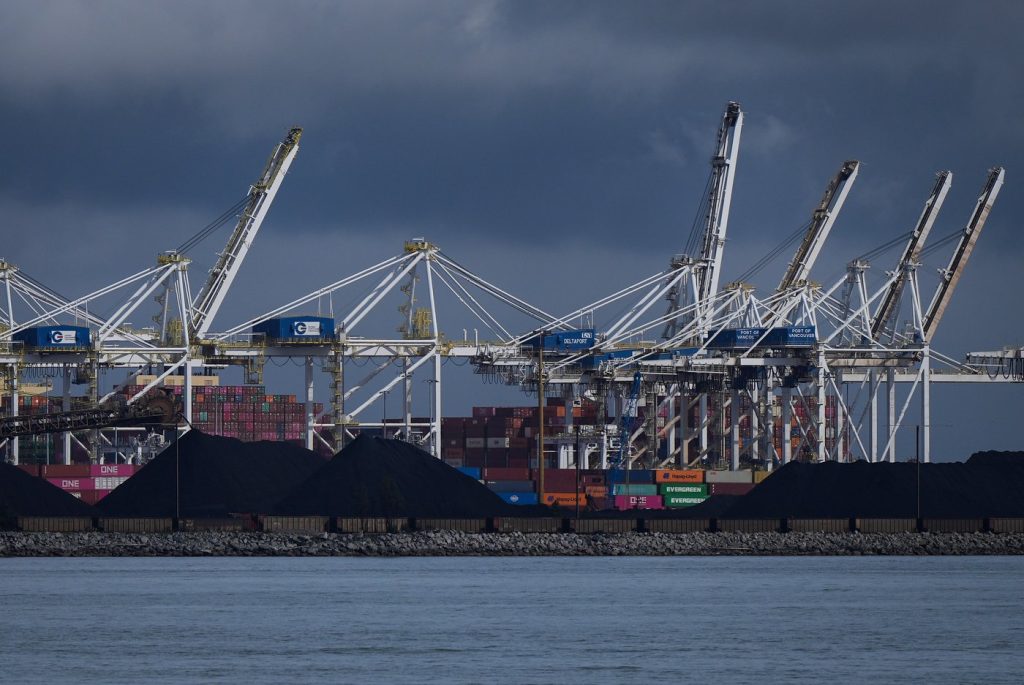Todd Rutter, co-owner of A Cappella Catering Co. based in Edmonton, describes himself as the "most non-tech person you've ever met." However, he is turning to technology and lessons learned during the COVID-19 pandemic to navigate the turbulent tariff policies implemented by U.S. President Donald Trump. The inflated food costs that arose as pandemic restrictions began to lift severely threatened the viability of his 35-year-old business, compelling him to take proactive measures to safeguard it from the volatility of changing U.S. tariffs.
In response to these challenges, Rutter’s company has developed a spreadsheet to monitor the costs of their 100 most commonly used ingredients. This tool allows them to implement a potential "tariff surcharge" on customers if necessary, as a means to maintain financial stability. “When all this stuff started happening, this talk of tariffs and our economy, I mean, I absolutely had to do everything I could possibly think of to fight it, to survive,” Rutter stated, highlighting the razor-thin profit margins that make even a slight increase in costs detrimental to businesses like his.
The international trade landscape is fraught with uncertainty due to Trump's erratic tariff policies. Shippers, in particular, have found themselves caught in a cycle of disruption, pausing shipments in response to tariff announcements and then racing to deliver goods before new duties take effect. Dave Pentland, vice-president of Carson International, a licensed customs broker based in Vancouver, shared that many clients were scrambling to adjust their shipment plans after the president's recent announcement of a 104 percent tariff on imports from China.
On a recent Wednesday, Trump declared a 90-day pause on the highest levies affecting most countries but maintained a 10 percent tariff on nearly all global imports. Following this announcement, Pentland noted that “freight is now moving again” despite some hefty storage fees incurred during the disruptions. He expressed hope for a more stable trade environment but acknowledged the unpredictability of the situation.
The U.S. tariffs on Canada, which began in early March with a 25 percent across-the-board levy and a lower 10 percent duty on energy and potash, remain unchanged as of the latest developments. Imports not covered by the Canada-U.S.-Mexico Agreement (CUSMA) are still subject to these tariffs, as are sectors like automobiles, steel, and aluminum. Fiona Famulak, CEO of the BC Chamber of Commerce, articulated the sense of "whiplash" felt by many businesses due to the constantly changing tariff scenario. While the recent 90-day pause is welcomed, she warned that the underlying threat remains significant.
Famulak compared the unpredictability of tariff policies to the pandemic, asserting that the latter was somewhat predictable due to scientific data guiding decisions. She noted that businesses learned to be agile during the pandemic and must continue to apply those principles by planning carefully, cutting costs, and exploring market diversification to adapt to ongoing changes.
As the tariff situation evolved, B.C. businesses were faced with difficult choices, leading to layoffs and the relocation of certain operations to the United States. Ramona Kaptyn from Surrey, B.C., expressed her fears regarding the implications of tariffs on her retirement savings, reflecting concerns that many seniors have as they rely on government assistance. “If the market keeps crashing, I could easily outlive my savings and not have the lifestyle that I have now. So, I am very, very concerned about what is happening with the tariffs,” she remarked, capturing the anxieties widespread among individuals and businesses alike as they confront the uncertainties created by tariff policies.










